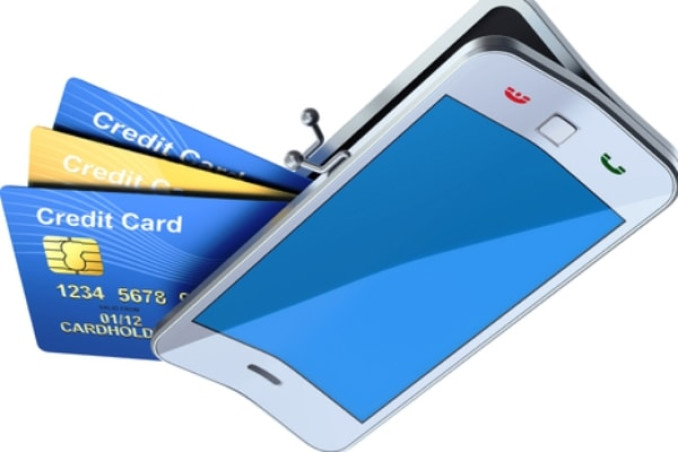Rwanda Telecoms Target Cross Border Mobile Money

Dias Nyesiga
THE INDEPENDENT.
AUGUST 20,2014.
Growing competition within the country's budding and fragile telecom sector in Rwanda is pushing operators to explore cross border mobile money to step up revenues.
The sector registered a decline in call tariffs that went down by 25% year-on- year by December 2013 leading to lower revenues. The dwindling revenues from calls are compounded by low internet usage.
Tigo Rwanda which opened the cross border doors early this year by partnering with its sister company Tigo Tanzania to offer mobile money (TIgo cash), is achieving early success.
The launch gave Rwanda's second largest operator a competitive advantage over its rival MTN RwandaCell, the market leader.
MTN Rwanda, which leads the mobile money segment, is also mulling harmonising its mobile money platforms MTN Uganda to allow both their subscribers to send to each other money without switching Simcards.
"We are working with MTN Uganda to harmonise our platforms so that our subscribers can send money to MTN Uganda subscribers," Arthur Rutagengwa, Head of Mobile Money at MTN said in an interview.
MTN Rwanda has 3,556,497 subscribers as of December 31, 2013 and over Rwf 90 billions transactions on its mobile money platform, according to the sector's regulator, Rwanda Utilities Regulatory Authority.
Mobile money - the use of cell phones for money transfers, payments and more sophisticated financial activities such as credit, savings, and insurance - is increasingly popular in East Africa.
Indeed, considering the time and convenience the cross border mobile money business is becoming an option for people paying across borders, something looked at to boost the fragile cross border trade.
"With open borders where people are trading freely, the aspect of mobile payments is important to make business grow," said Theodore Murenzi, Executive Secretary of Rwanda long Distance Truckers Association.
The recent penning of stronger policies on the customs unions protocol that saw the region becoming a single market with goods crossing borders at ease, the mobile money business comes at an opportune time to facilitate financial transactions.
It has also proved a sustainable source of revenues for telecom operators in the region, something experts believe together with the need for regional transfers would woo operators who are still dragging their feet to venture in.
MTN Mobile Money in Uganda is already showing impressive growth with a 47% increase representing 5.2 million registered subscribers with transactions hitting UShs25 million (approx. Rwf 6.7 million) every month.
In Kenya's Safaricom M-pesa increased the number of subscribers to 15.2 million towards the end of the first half of 2013 up from 14.2 million in the same period in 2012, with revenues growing to KShs10.43 billion while MTN Rwanda registered over Rwf90 billion transactions.
Currently, to send money from Rwanda to Uganda or Kenya, one needs an agent at a forex bureau to convert the money then informs a colleague across the border to credit the mobile money wallet of the person you are sending to.
"It is still a challenge, at times network breakdown or you find the other agent doesn't have enough money to handle the bulk orders we have sent to him," says Fiona Uwase, a forex bureau attendant.
Telecom experts believe that cross border mobile money is likely to take over from other forms of money transfer as it is seen as most efficient, easy and flexible way of mobile payments.
"This is definitely a milestone to achieve a cash-lite economy, sending and receiving money through the mobile phone is more convenient, easier, faster and more secure than doing it with cash,"
Despite the achievements by telecom operators within their respective countries, the cross border mobile money poses a challenge as more is needed in policy regulations and standards.
"Mobile banking is no different to other financial transactions like banks and money transfers, so standards must be drawn to regulate it to protect the consumer," says Said Syed Zain Khan, a professor at Carnigie Mellon University in Rwanda.
Moreover, the report by UN conference on Trade and Development-UNCTAD "Mobile Money for Business Development in the East African Community: a Comparative Study of Existing Platforms and Regulations", calls for keen coordination and cooperation across various regulatory and market sectors, such as telecommunications, banking and electronic commerce.
Syed says that there is need for multi-sectoral participation, security on the platforms, policies and regulations to keep the platform safe and free from frauds, and money laundering.
"They also have to look at monetary issues, conversion ratios across different currencies," he says adding that there is also need to look at how the banks and telecoms across the borders would be working together as opposed to suffocating each other.
Anand Sharma, a technology expert form Techno Brain Rwanda, says that the solutions the telecoms will use will impact much on the efficiency of the platform to facilitate cross border mobile banking.
 Africas leading resource for digital financial services
Africas leading resource for digital financial services


comments